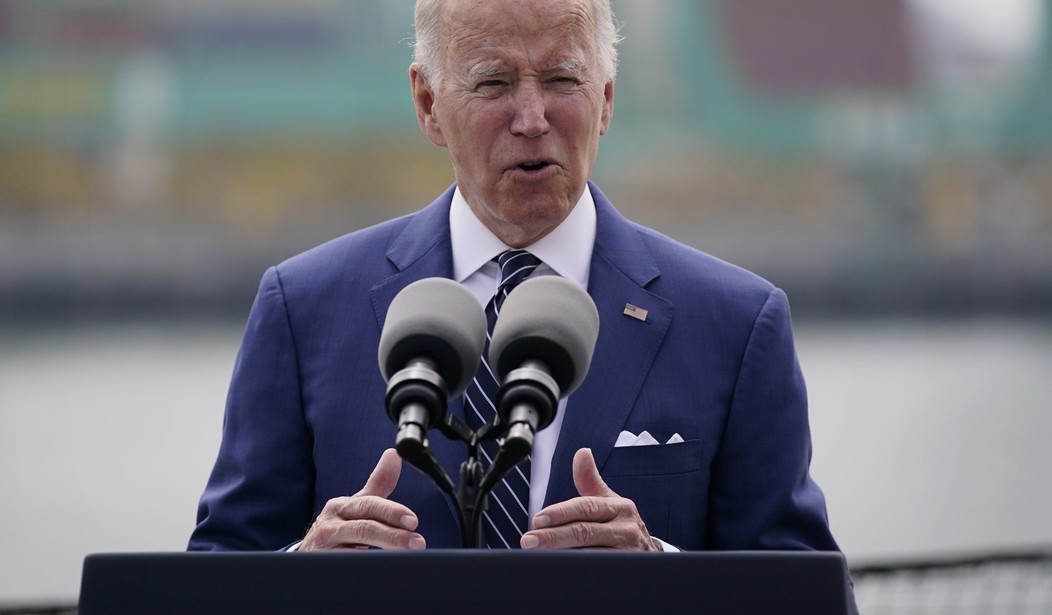Or it’s still really the stupid economy. Take your pick, but the latest Associated Press/NORC poll shows that voter focus on personal economics as their midterm criterion has grown faster than the inflation that’s driving it. Inflation concerns gave risen from “less than 1%” a year ago to the top of the list, and personal finances are right behind on the priority list:
Concerns about inflation and personal finances have surged while COVID has evaporated as a top issue for Americans, a new poll shows, marking an upheaval in priorities just months before critical midterm elections.
Forty percent of U.S. adults specifically name inflation in an open-ended question as one of up to five priorities for the government to work on in the next year, according to a June poll from The Associated Press-NORC Center for Public Affairs Research. That’s a sharp rise from 14% in December and less than 1% the year prior. Seventy-seven percent mention the economy in any way, up from 68% in December.
Now, too, Americans increasingly call their personal finances a major issue: 44% mention it, up from 24% in December and 12% the year before. That includes more mentioning gas or energy prices (33% now vs. 10% in December) and food costs (9% vs. less than 1%).
After noting that “these shifts may be advantageous to Republicans,” the AP then tries to buffer that bad news with data on abortion. Mentions of abortion as a priority did rise from 8% in December to 22% in the latest iteration, but that’s well below the mentions of economic factors. It’s not clear whether any data exists to show the issue of abortion changing voter choices or even making some voters more likely to turn out.
This graphic shows that even with the increase, abortion still comes near the bottom of concerns, even while giving respondents five choices to select:

Abortion mentions did increase by 14 points, but personal finances increased by 20 points in the same period. Inflation mentions increased by 28 points. Which issues look more urgent and dynamic in the electorate — especially given the momentary reaction to Dobbs versus the daily lived experience of inflation and eroding buying power? To answer that, look at where the economic issues land on this chart and note that no other issue got to 40% on the previous AP/NORC poll — not even COVID-19 in the middle of the Omicron wave.
Let’s also not forget that James Carville’s famous electoral admonition that “it’s the economy, stupid” was intended as an evergreen observation on elections. Even in good times, Americans tend to focus on their personal finances as a filter for their voting choices, an instinctual more than intellectual process that automatically tends to discount issues like climate change and foreign policy. To get voters to care about those issues as a primary voting motive, advocates usually have to sell their economic benefits. When the economic environment turns this sour, the economy is practically the only issue on which voters will decide. Until the economic conditions improve enough to stop the erosion of working- and middle-class buying power and shortages come to an end, inflation and other economic concerns will eclipse everything else, perhaps even for the activists.
We saw the same dynamics in the latest Reuters polling as well. That poll only allowed one answer pre respondent and didn’t mention abortion, but a third of respondents picked the economy as the top issue — coming in first among Democrats (24%) as well as Republicans (42%). The second highest priority overall and in both parties was crime, which got 11% overall. Among Democrats, that tied with the environment at 10%, but it again demonstrates the power of daily lived experience against ideological agendas when it comes to voter choice.
If there’s any debate over how these numbers play out in this midterm cycle, another AP story from late yesterday should put it to rest. In a follow-up of a similar story last week, the AP reports that we’re looking at a major realignment, especially in the suburbs:
A political shift is beginning to take hold across the U.S. as tens of thousands of suburban voters who helped fuel the Democratic Party’s gains in recent years are becoming Republicans.
Across 31 states, about two-thirds of voters who have switched their official party registrations in the past year have switched to the Republican Party, according to voter registration data analyzed by The Associated Press. The phenomenon is playing out in virtually every region of the country — Democratic and Republican states along with cities and small towns — in the period since President Joe Biden replaced former President Donald Trump.
Nowhere is the shift more pronounced — and dangerous for Democrats — than in the suburbs. Over the last year, far more people are switching to the GOP across suburban counties from Denver to Pittsburgh. Republicans also gained ground in counties around medium-size cities such as Harrisburg, Pennsylvania; Raleigh, North Carolina; and Des Moines, Iowa.
I’ve mentioned from time to time the two big risks of single-party governance — overreach and incompetence. We’ve seen both in large quantities from Joe Biden and his party over the past seventeen months, especially the latter in terms of economic and energy policy but also in terms of setting realistic expectations. The massive disillusionment of Biden The Centrist Uniter with suburban voters as well as all of the other incompetencies in the Oval Office thus far in Biden’s presidency makes this more of a realignment than a reaction now. And since Republicans won’t run the risks of single-party governance for at least another two years, this kind of realignment may continue right through the 2024 election and beyond.








Join the conversation as a VIP Member